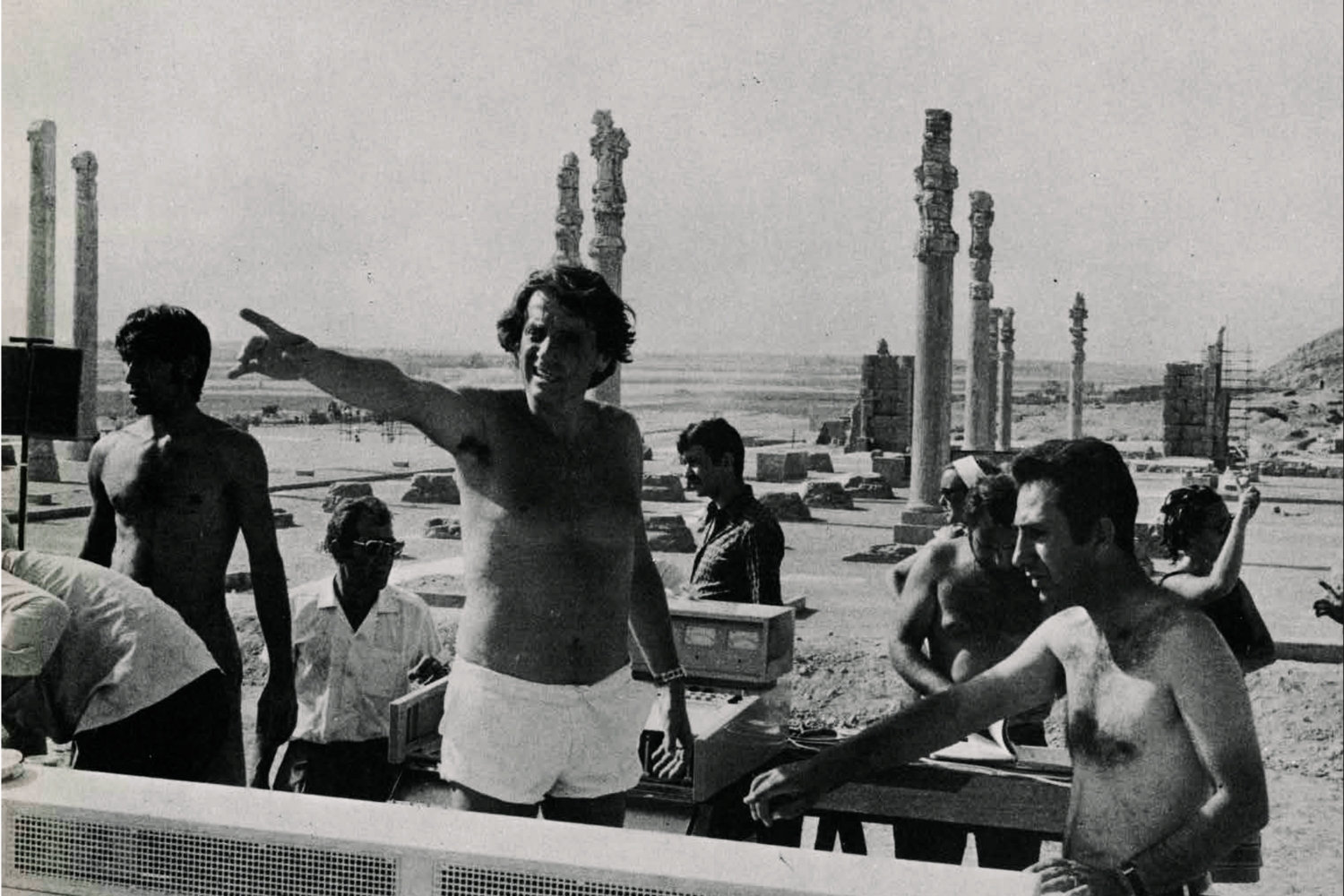


+ Google Map
$15 – $25
ENCORE PRESENTATION
In 1971, the Greek-French composer Iannis Xenakis (1922-2001) was commissioned to create a piece for the opening day of the fifth edition of the Shiraz Arts Festival. The event commemorated the 2500th anniversary of the founding of the Persian Empire and took place at the ruins of Persepolis, the ceremonial capital of the Achaemenid Empire (~550 – 330 BCE), situated about 45 miles northeast of the modern city of Shiraz. Xenakis created a site-specific, open-air spectacle called “Polytope de Persepolis”. The original performance included a 55-minute long 8-track electroacoustic composition distributed over 59 speakers, two laser beams, army searchlights, a choreography of 150 children carrying torches and several large bonfires on the surrounding hills facing the ruins.
For this event we have collaborated with the LA-based listening non-profit BLACK HOLE to present a special new rendering of “Persepolis”. This event, under the sound direction of Micah Silver, offers a rare chance to hear Xenakis’ original source audio material in a multi-speaker arrangement specifically devised for the Asian Arts Initiative Theater.
LISTENING SESSIONS
Approximate 60 min run time. Limited space available. Advanced tickets required.
Saturday, March 16th @ 6:30 pm: Buy Tickets
Saturday, March 16th @ 8:00 pm: Buy Tickets
This event is part of A UTOPIAN STAGE, an exhibition at Asian Arts Initiative from February 9 to March 30, 2024.
Pictured above: Iannis Xenakis in preparations for the premiere of “Persepolis” music and light spectacle, at the ancient ruins of Persepolis, 1971. (World Premiere, festival commission for the opening event); Courtesy Les Amis de Xenakis / Archaeology of the Final Decade Archives
A NOTE ABOUT THIS PROJECT
As is true with much of Xenakis’ “Polytopes”, this ritualistic, site-dependant and intersensory performance fully resists documentation, substantive “re-presentation” or interpretation. In spite of this, and with almost nobody alive having experienced it directly, it remains an influential work of art, more legend than anything else.
This is not unique to this work or Xenakis, but is a common problem with audio works that can’t be distributed easily as stereo media products by the record industry since the 1950s. For pieces like this, how can we extend the research invested in these practices into the present without confusing them with more familiar tropes? How can we share the insights into music, listening, and composing with those looking to account for and build on this history?
In the case of “Persepolis”, much can be learned from listening with and imagining through the fragmented partiality carried by the audio components of the work, even absent the torchbearers, lasers, and tens of loudspeakers in an ancient ruin. This is especially true in the context of this exhibition, where visitors are given tools to imagine its context of creation.
BLACK HOLE takes as its point of departure that “listeners are the performers” – to emphasize that audio is not a carrier for a real or an original but a vehicle for our own projections and imagination, to reflect on the way our attention is structured in time and space by this technology. Audio is a technology of representation not recreation.
In presenting a new rendering of audio from the work “Persepolis” we invite the audience to imagine the expanded possibilities of what audio can do – how it can alter a landscape and engage in the feelings and tactics of history, myth, and the pressures of the present.
- This event has passed.

